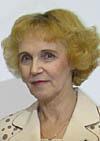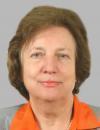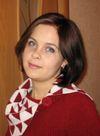References
- Parkacheva V. L., Trostyanskaya I. B., Grishakina E. G., Polikhina N. A. Government Support for Universities: Regional Coverage. Vysshee obrazovanie v Rossii [Higher Education in Russia]. 2022. Vol. 3 (6). P. 9‒26. DOI: 10.31992/0869-3617-2022-31-6-9-26 (In Russ.)
- Bazanova E. M., Korotkina I. B. [Russian Writing Centers Consortium] [Electronic resource]. Vysshee obrazovanie v Rossii [Higher Education in Russia]. 2017. No. 4. P. 50–57. Electron. dan. URL: https://vovr.elpub.ru/jour/article/view/1009/906 (date of acсess 20.10.2022). (In Russ.)
- Smirnova N. V. Fostering academic literacy and academic writing in university: from theory to practice. Vysshee obrazovanie v Rossii [Higher Education in Russia]. 2015. No. 6. P. 58–64 (In Russ.)
- Korotkina I. B. Academic literacy and assessment in the education paradigm. Tsennosti i smysly [Values and Meanings]. 2017. No. 5 (51). P. 109‒126. (In Russ.)
- Academic Literacy: A Statement of Competences Expected of Students Entering California’s Public Colleges and Universities. Intersegmental Committee of the Academic Senates (ICAS). 2002. 88 p. [Electronic resource]. Electron. dan. URL: https://senate.universityofcalifornia.edu/_files/reports/acadlit.pdf (date of acсess 20.10.2022).
- Rotgon S. G. Writing Centers in Russian Universities: Goals, Objectives and Impediments. Nepreryvnoe obrazovanie: XXI vek [Lifelong Education: The 21st century]. 2019. No. 1 (25). DOI: 10.15393/j5.art.2019.4486 (In Russ.)
- Publishing Research in English as an Additional Language: Practices, Pathways and Potentials / Cargill M., Burgess S. (eds.). Adelaide. 2017. 277 p. [Electronic resource]. Electron. dan. URL: https://www.adelaide.edu.au/press/titles/english-pathways/english-pathways-ebook.pdf (date of acсess 19.01.2023).
- Suchkova S. A. Russian Model of a Writing Center: The Case of the Higher School of Economics. Emerging Writing Research from the Russian Federation. WAC Clearinghouse, University Press, Colorado; 2021. P. 153–170. DOI: 10.37514/INT-B.2021.1428.2.06
- Glushko T. Developing Writing Centers in Russia: A Balancing Act. Emerging Writing Research from the Russian Federation. WAC Clearinghouse, University Press, Colorado, 2021. P. 127–152. DOI: 10.37514/INT-B.2021.1428.2.05
- Aksakalova O., Squires L., Ashley A Transitional Training Model for Peer Tutors: Authority, Rhetorical Awareness, and Language in/through Virtual Exchange Practices. Emerging Writing Research from the Russian Federation. WAC Clearinghouse, University Press, Colorado; 2021. P. 171–192. DOI: 10.37514/INT-B.2021.1428.2.07
- Corbett S. J. Tutoring Style, Tutoring Ethics: The Continuing Relevance of the Directive / Nondirective Instructional Debate. Praxis: A Writing Center Journal. 2008. No. 5.2. P. 148–155.
- Kolesnikova N. I. Russian Scientific Style vs Academic Writing, Society. Communication. Education. 2022. No. 13 (1). P. 36–47. DOI: 10.18721/JHSS.13104
- Belyakova L. F. Sidorova T. L., Petruneva R. M., Vasilyeva V. D. Improvement of Speech Culture of Technical University Students. Vysshee obrazovanie v Rossii [Higher Education in Russia]. 2016. No. 6 (502). P. 154‒161. (In Russ.)
- Korotkina I. B. Russian Scholarly Publications in Anglophone Academic Discourse: The Clash of Tyrannosaurs. Integraciya obrazovaniya [Integration of Education]. 2018. No. 22 (2). DOI: 10.15507/1991-9468.091.022.201802.311-323 (In Russ.)
- Krasnova T. I., Lugovcova E. I. Missteps and annoying violations of norms academic letters in faculty publications. Vysshee obrazovanie v Rossii [Higher Education in Russia]. 2012. No. 5. P. 37‒43 (In Russ.)
- Zashikhina I. M., Pechinkina O. V. Scientific Publications Format IMRaD for Social and Humanities Research: A Chance to Be Heard. Vysshee obrazovanie v Rossii [Higher Education in Russia]. 2022. No. 31 (10). P. 150–168. DOI: 10.31992/0869-3617-2022-31-10-150-168 (In Russ.)
- Lynn S. Rhetoric and Composition. Cambridge, 2010. 330 p. DOI: 10.1017/CBO9780511780172
- Abramova N. V., Essina I. Y. Innovative strategies in bilingual education. Fundamental'nye issledovanie [Fundamental Research]. 2014. No. (6-2). P. 345‒349. (In Russ.)
- Blake T. Reframing foreign language learning as bilingual education: epistemological changes towards the emergent bilingual. International Journal of Bilingual Education and Bilingualism. 2018. No. 21 (8). P. 1041–1048.
- Constant L., Guadalupe V. Translanguaging and the Transdisciplinary Framework for Language Teaching and Learning in a Multilingual World. The Modern Language Journal. 2019. No. 103 (2). P. 348–370. DOI: 10.1111/modl.12568
- Young A. Teaching Writing Across the Curriculum. 4th ed. Upper Saddle River, New Jersey, 2006. 82 p. [Electronic resource]. Electron. dan. URL: https://wac.colostate.edu/docs/books/young_teaching/young_teaching.pdf (date of acсess 19.01.2023).
- Popova N. G., Koptyaeva N. N. Akademicheskoe pis'mo: stat'i IMRAD: ucheb. posobie dlya aspirantov i nauchnyh sotrudnikov estestvenno-nauchnyh special'nostej [Academic writing: IMRAD articles. A training manual for postgraduate students and researchers in the natural sciences]. Yekaterinburg, 2014. 160 p. [Electronic resource]. Electron. dan. URL: http://i.uran.ru/nasledie/content/akademicheskoe-pismo-stati-imrad (date of acсess 19.01.2023). (In Russ.)
- Kolesnikova N. I. Ot konspekta k dissertacii [From Abstract to Dissertation: Textbook on the Development of Writing Skills]. Moscow, 2012. 288 p. (In Russ.)
- Korotkina I. B. Akademicheskoe pis'mo: process, produkt i praktika: ucheb. posobie dlya vuzov [Academic Writing: Process, Product and Practice: Teaching Manual for Universities]. Moscow, 2016. 295 p. (In Russ.)
- Korotkina I. B. The Story of Writing: From Classical Rhetoric to Rhetoric and Composition. Vysshee obrazovanie v Rossii [Higher Education in Russia]. 2021. No. 30 (12). P. 75‒86. DOI: 10.31992/0869-3617-2021-30-12-75-86 (In Russ.)
- Chin A. Impact of Bilingual Education on Student Achievement. IZA World of Labor. 2015. No. 131. DOI: 10.15185/izawol.131
- Jonathan H. Toward a Unified Writing Curriculum: Integrating WAC/WID with Freshman Composition. The WAC Journal. 2006. No. 17. P. 5–23. DOI: 10.37514/WAC-J.2006.17.1.01
- Babakova T. A. Readiness of students for independent learning activities in higher education. Vestnik vysshej shkoly [Bulletin of Higher Education]. 2019. No. 1. P. 47–54. (In Russ.)
- Dobrynina O. L. Abstract of an Article in Engineering Sciences and its Machine Translation. Resources and Technology. 2022. No. 2 (19). P. 103–117. DOI: 10.15393/j2.art.2022.6223 (In Russ.)
- Dudnik L. V., Putilovskaya T. S. Educational Paradigm of Academic Writing. Vysshee obrazovanie v Rossii [Higher Education in Russia]. 2020. No. 29 (1). P. 88–97. DOI: https://doi.org/10.31992/0869-3617-2020-29-1-88-97
- Zashikhina I. M. Academic Writing: A Discipline or Disciplines? Vysshee obrazovanie v Rossii [Higher Education in Russia]. 2021. No. 30 (2). P. 134–143. DOI: 10.31992/0869-3617- 2021-30-2-134-143. (In Russ.)
- Baker C. Foundations of Bilingual Education and Bilingualism. Clevedon, UK, 2011. 480 p.
- Yusupova L. N. Propaedeutic Course in Academic Writing for the Student Research Community. Nepreryvnoe obrazovanie: XXI vek [Lifelong Education: The 21st century]. 2022. No. 3 (39). DOI: 10.15393/j5.art.2022.7849 (In Russ.)
- Korotkina I. B. Modeli obucheniya akademicheskomu pis'mu. Zarubezhnyj opyt i otechestvennaya praktika [Models of teaching academic writing. Overseas practices and domestic experience]. Moscow, 2023. 219 p.














